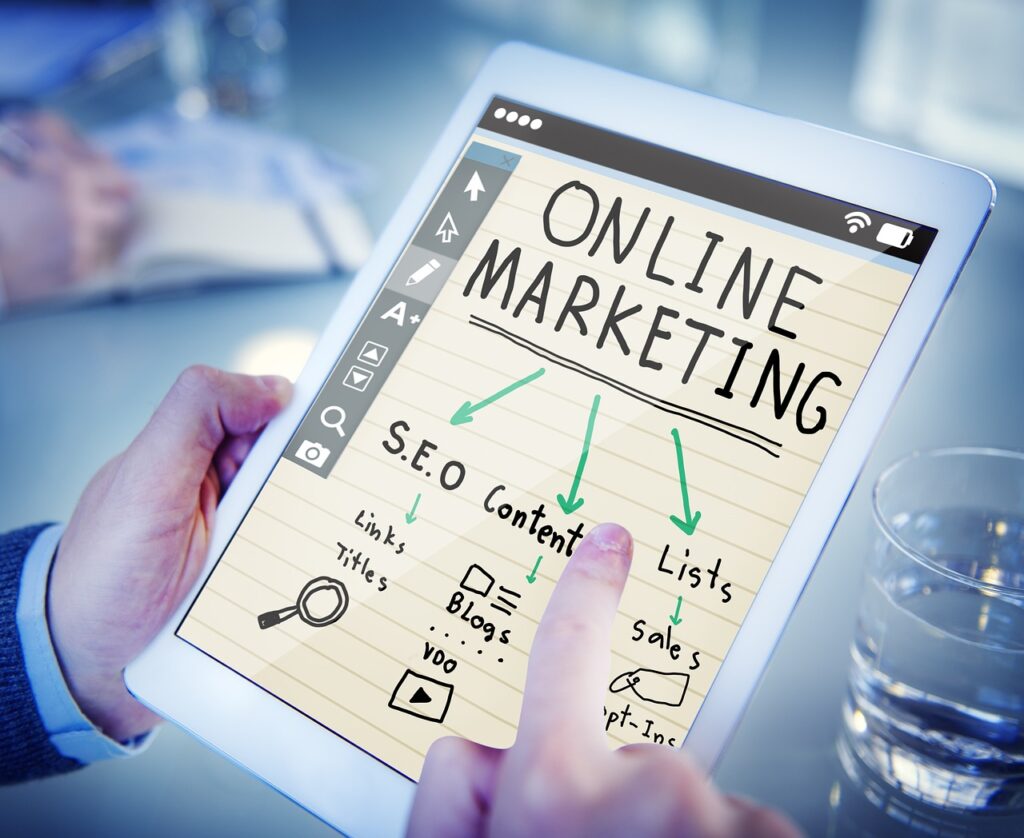Building an Effective Digital Marketing Funnel
Understanding the Digital Marketing Funnel
In the digital age, a well-crafted marketing funnel is essential for businesses looking to attract, engage, and convert potential customers. A digital marketing funnel is a strategic process that guides potential customers through a series of stages, from initial awareness to final conversion. By understanding and optimizing each stage of this funnel, businesses can effectively nurture leads, build brand loyalty, and drive sales.
Awareness: Capturing Attention
The first stage of the digital marketing funnel is awareness. This is where potential customers become aware of your brand, products, or services. Effective awareness-building strategies may include search engine optimization (SEO), social media marketing, content marketing, and targeted advertising. The goal is to ensure your business is visible and memorable to your target audience, ultimately driving them to the next stage of the funnel.
Interest: Engaging Potential Customers
Once a potential customer is aware of your business, the next step is to pique their interest. This is where you need to provide valuable and relevant content that addresses their pain points, interests, or needs. This could include blog posts, videos, webinars, or social media posts that showcase your expertise and the benefits of your offerings. By consistently delivering high-quality content, you can build trust and position your business as a thought leader in your industry.
Consideration: Nurturing Leads
As potential customers become more interested in your business, they enter the consideration stage. This is where you need to provide them with the information and resources they need to make an informed decision. This may include product demos, free trials, case studies, or personalized consultations. By addressing their questions and concerns, you can help them move closer to making a purchase.
Conversion: Closing the Deal
The final stage of the digital marketing funnel is conversion. This is where potential customers take the desired action, such as making a purchase, signing up for a service, or completing a lead form. Effective conversion strategies may include streamlined checkout processes, targeted calls-to-action, and special offers or incentives. By making the conversion process as frictionless and compelling as possible, you can maximize the number of customers who take the desired action.
Retention and Advocacy: Building Lasting Relationships
But the journey doesn’t end there. The most successful digital marketing funnels also focus on retaining and nurturing existing customers, as well as turning them into advocates for your brand. This may involve providing exceptional customer service, offering personalized recommendations, and encouraging customer reviews and referrals. By cultivating long-term relationships with your customers, you can increase customer lifetime value and drive sustainable growth for your business.
Optimizing the Digital Marketing Funnel
Building an effective digital marketing funnel is an ongoing process that requires continuous monitoring, testing, and optimization. By analyzing data from each stage of the funnel, you can identify areas for improvement and make data-driven decisions to enhance the customer experience and drive better results.
Some key metrics to track include:
- Awareness: Website traffic, social media engagement, brand awareness
- Interest: Content engagement, lead generation, email open and click-through rates
- Consideration: Lead-to-opportunity conversion rates, sales pipeline velocity
- Conversion: Sales conversion rates, average order value, customer acquisition cost
- Retention and Advocacy: Customer retention rates, customer lifetime value, referral and review rates
By continuously optimizing your digital marketing funnel, you can ensure that your business is effectively attracting, engaging, and converting the right customers, ultimately driving sustainable growth and long-term success.
Optimizing Your Funnel for Maximum Conversion
The Essentials of Effective Digital Marketing Funnels
In the ever-evolving landscape of digital marketing, the concept of the marketing funnel has become a crucial strategy for businesses to attract, engage, and convert their target audience. An effective digital marketing funnel can be the key to unlocking sustainable growth and long-term success. By understanding the intricacies of this powerful tool, you can optimize your funnel to maximize conversions and drive your business forward.
Understanding the Digital Marketing Funnel
The digital marketing funnel is a visual representation of the customer journey, outlining the different stages potential customers go through before making a purchase or taking a desired action. This funnel typically consists of four primary stages: Awareness, Interest, Desire, and Action (AIDA). Each stage plays a crucial role in guiding the customer through the decision-making process, and it’s essential to tailor your marketing efforts to address the unique needs and behaviors of your audience at each step.
Optimizing the Awareness Stage
The first stage of the digital marketing funnel is Awareness, where you aim to introduce your brand, products, or services to your target audience. This is where you need to focus on creating engaging content, leveraging search engine optimization (SEO), and utilizing various social media platforms to capture the attention of potential customers. By crafting compelling messaging and delivering valuable information, you can effectively increase brand recognition and draw in interested consumers.
Nurturing Interest and Desire
Once you’ve captured the attention of your audience, the next step is to nurture their Interest and Desire. This involves providing more detailed information about your offerings, highlighting their unique benefits, and addressing any concerns or objections. This stage is where you can utilize email marketing, targeted advertising, and personalized content to build a stronger connection with your audience and guide them towards making a purchase.
Driving Conversion Through Action
The final stage of the digital marketing funnel is Action, where you encourage your audience to take the desired step, whether it’s making a purchase, signing up for a newsletter, or engaging with your brand in a specific way. This is where you need to optimize your website, streamline the checkout process, and incorporate clear calls-to-action (CTAs) to make it as easy as possible for your audience to convert. Additionally, employing tactics like social proof, urgency, and personalization can further incentivize your audience to take the desired action.
Continuous Optimization and Refinement
Effective digital marketing funnels are not static; they require continuous optimization and refinement to adapt to changing market conditions, customer preferences, and emerging trends. By regularly analyzing your funnel’s performance, identifying bottlenecks, and making data-driven adjustments, you can continuously improve its efficiency and drive better results.
Leveraging Analytics and Tracking
Effective funnel optimization relies heavily on robust analytics and tracking. By monitoring key metrics such as website traffic, conversion rates, customer acquisition costs, and customer lifetime value, you can gain valuable insights into the performance of your funnel and identify areas for improvement. Utilize tools like Google Analytics, customer relationship management (CRM) software, and attribution modeling to track the customer journey and make informed decisions about your marketing strategy.
Personalizing the Customer Experience
In today’s competitive digital landscape, personalization has become a crucial element of effective marketing funnels. By tailoring your messaging, content, and offers to the specific needs and behaviors of your target audience, you can create a more engaging and relevant customer experience. Leverage data-driven insights, segmentation, and personalization tools to deliver customized experiences that resonate with your audience and drive higher conversion rates.
Optimizing your digital marketing funnel for maximum conversion is a continuous process that requires a deep understanding of your audience, a well-crafted marketing strategy, and a commitment to data-driven optimization. By focusing on the key stages of the funnel, incorporating personalization, and continuously refining your approach, you can unlock the full potential of your digital marketing efforts and drive sustainable business growth.
Conclusion
Creating an effective digital marketing funnel is a crucial aspect of any successful online business. By understanding the different stages of the buyer’s journey and tailoring your marketing efforts accordingly, you can guide your audience through the sales process and ultimately convert more leads into loyal customers.
Optimizing your funnel for maximum conversion is key to ensuring that your marketing efforts are yielding the best possible results. This involves constantly testing and refining your funnel elements, such as your landing pages, lead magnets, and call-to-action buttons, to identify what resonates best with your target audience. It’s also important to track your funnel’s performance metrics, such as conversion rates and customer lifetime value, to identify areas for improvement and make data-driven decisions.
One of the most effective ways to optimize your digital marketing funnel is to focus on personalization. By tailoring your messaging and offers to the specific needs and preferences of your audience, you can create a more engaging and relevant experience that ultimately drives higher conversion rates. This may involve segmenting your audience based on demographic, behavioral, or psychographic data, and then crafting customized campaigns and content for each group.
Another crucial element of funnel optimization is ensuring a seamless user experience. This means making it easy for your audience to navigate your website, access your content, and complete their desired actions. This may involve optimizing your site’s loading speed, improving the intuitiveness of your navigation, and streamlining your checkout process.
It’s important to continuously test and refine your digital marketing funnel. This may involve experimenting with different offers, messaging, and design elements to see what resonates best with your audience. By regularly analyzing your funnel’s performance data and making adjustments based on your findings, you can gradually improve your conversion rates and drive more revenue for your business.
Building and optimizing an effective digital marketing funnel is a critical component of any successful online marketing strategy. By understanding the buyer’s journey, personalizing your approach, and continuously testing and refining your funnel, you can create a powerful tool for driving leads, conversions, and long-term customer loyalty.



